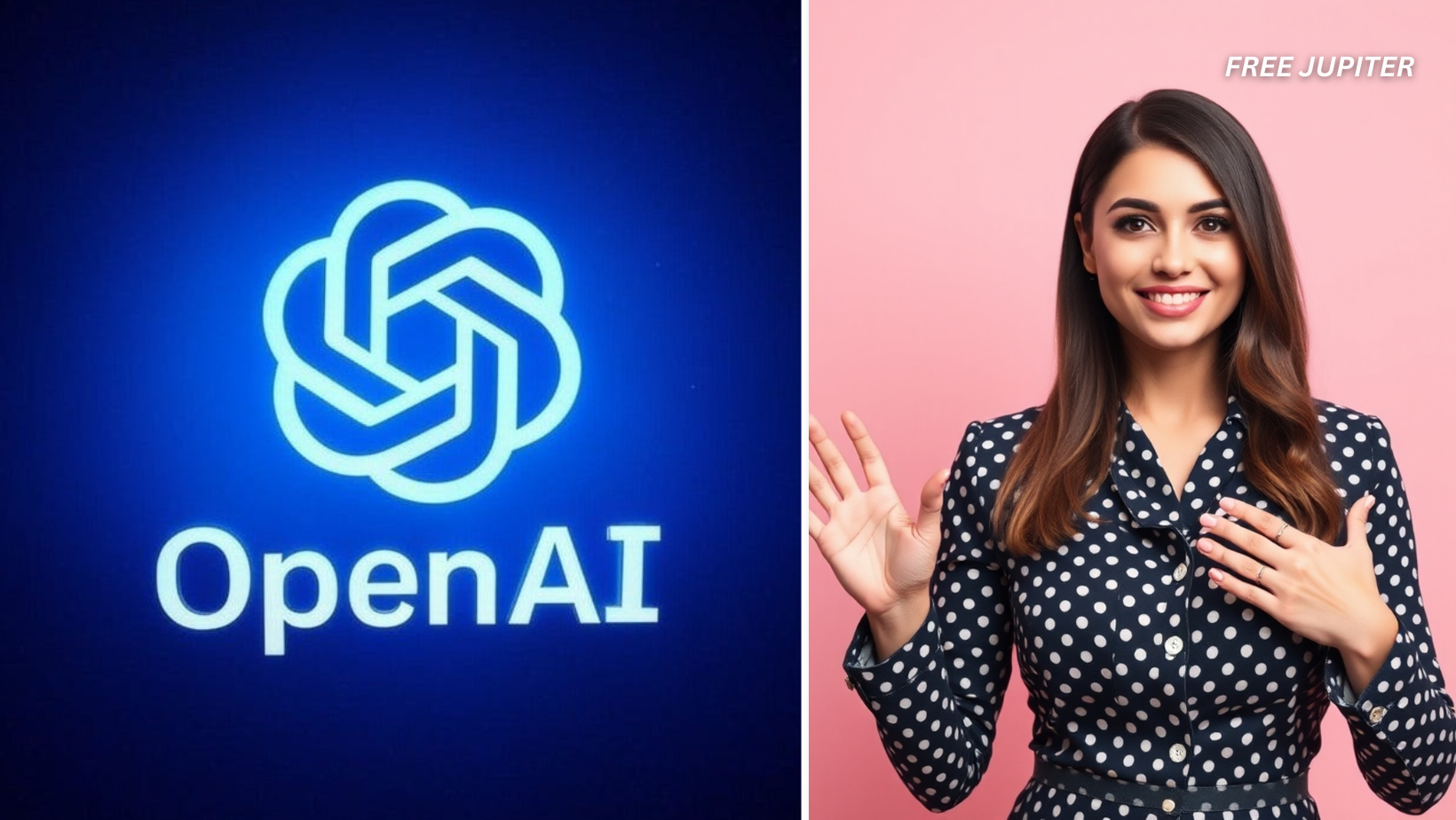Friendly Note: FreeJupiter.com shares general info for curious minds 🌟 Please fact-check all claims—and always check health matters with a professional 💙
In our daily interactions with technology, it’s become second nature to treat virtual assistants and chatbots with the same politeness we extend to people. Adding a “please” or “thank you” to a ChatGPT prompt feels natural, almost instinctive. But beneath this simple gesture lies a surprising reality: these small words are quietly driving up operational costs for OpenAI by tens of millions of dollars annually. This revelation, shared by OpenAI’s CEO Sam Altman, sheds light on the intricate relationship between human communication habits and the immense computational resources powering AI.
Let’s delve deeper into why these courteous phrases carry such a hefty price tag, what it means for the environment, and how our digital etiquette might be shaping the future of AI interactions.
Understanding the Mechanics: How Politeness Translates to More Computing
At the heart of ChatGPT’s functionality are massive language models that process text by breaking it down into smaller units called tokens. Each token roughly corresponds to a word or part of a word. When you type a prompt, the AI analyzes these tokens and generates a response, token by token. This process demands enormous computational power, running on thousands of specialized processors housed in data centers around the world.
When users add polite phrases like “please” or “thank you,” they increase the number of tokens the system must process. While a few extra words might seem trivial, the scale at which ChatGPT operates magnifies their impact. With roughly one billion prompts handled daily, even tiny increases in token count accumulate into significant additional energy consumption and costs.
Sam Altman’s comment about these “tens of millions of dollars well spent” highlights a fascinating paradox: good manners, while socially commendable, are not free in the digital realm. Each polite word nudges the AI’s workload upward, translating into higher electricity bills and greater wear on hardware.
Read more: Scientists Warn That AI Systems Have Officially Learned To Lie To Us
The Energy Footprint of AI Conversations
To grasp the scale of this impact, consider the energy consumption involved in generating a single ChatGPT response. Research from AI analysis groups indicates that one reply consumes approximately 0.3 kilowatt-hours (kWh) of electricity. To put that in perspective, it’s about ten times the energy required for a simple Google search.
Multiply this by the staggering volume of daily interactions-billions of prompts exchanged worldwide-and the total energy use becomes enormous. Even marginal increases in prompt length, caused by polite language or verbose queries, lead to a meaningful rise in electricity demand.
Data centers, where these AI computations occur, are already significant energy consumers. Globally, they account for around 1.5% of all electricity usage, a figure projected to double by 2030 as AI adoption accelerates. Beyond electricity, cooling these facilities requires vast quantities of water, adding another layer to the environmental cost.
For example, generating a short AI-written email of about 100 words can consume enough energy to power 14 LED light bulbs for an hour. When multiplied across millions or billions of such interactions, the cumulative environmental footprint becomes a serious consideration.
Why Do People Speak Politely to Machines?
It might seem odd to extend human social niceties to an AI, a non-sentient program. Yet surveys reveal that a majority of users do exactly that. In the United States, about 67% of people regularly say “please” and “thank you” to chatbots, according to a report cited by TechRadar. In the UK, the figure is even higher, with 71% of users engaging politely.
The reasons behind this behavior are varied. For many, it’s simply a habit carried over from face-to-face interactions. Others view politeness as an ethical choice, believing it’s the right way to communicate, even with machines. A smaller but intriguing percentage-around 12%-admit they use courteous language “just in case” AI ever develops self-awareness.
This blend of social conditioning, ethical reflection, and speculative caution creates a fascinating dynamic where humans project their own communication norms onto digital interlocutors.
Does Politeness Affect AI Responses?
Politeness may not only influence costs but also the quality of AI-generated replies. Experts in AI design suggest that respectful phrasing can lead to more thoughtful and nuanced responses. Kurtis Beavers, design director for Microsoft Copilot, noted in a Microsoft WorkLab interview that when users employ polite language, the AI is more likely to “be polite back,” fostering a collaborative tone.
This phenomenon likely stems from the AI’s training data, which includes countless examples of human interactions where politeness correlates with positive outcomes. When users slow down to phrase requests carefully and respectfully, the AI can better interpret their intent, resulting in clearer, more accurate answers.
Thus, politeness serves as a kind of communication lubricant, smoothing the exchange between human and machine and enhancing the overall experience.
Read more: Billions of Gmail Users Were Issued Urgent Warning Over An ‘Extremely Sophisticated Attack’
Balancing Cost, Environment, and User Experience
OpenAI’s acknowledgment of the financial impact of polite language underscores a broader challenge in AI development: balancing user experience with operational efficiency and environmental responsibility.
While the extra costs incurred by courteous prompts are substantial, they are also seen as an investment in making AI interactions feel natural and accessible. Encouraging polite, thoughtful communication helps build trust and comfort with AI tools, which is crucial for their widespread adoption.
At the same time, OpenAI and other companies are actively researching ways to reduce the computational burden of AI. Innovations include developing smaller, more efficient models that require less energy per query, optimizing hardware, and improving software algorithms to handle language more economically.
These efforts aim to ensure that AI remains sustainable as it becomes an ever-more integral part of daily life.
Should You Stop Being Polite to AI?
Given the high cost of extra tokens, some might wonder if it’s better to skip the “please” and “thank you” when chatting with AI. The short answer: it’s not necessary to change your habits.
OpenAI’s leadership has not suggested that users abandon politeness. Instead, they seem to recognize that these small words contribute positively to the interaction’s tone and quality. The financial and environmental costs, while significant, are part of the trade-offs involved in creating AI that feels approachable and human-like.
If anything, this insight invites us to be more mindful of how we communicate with technology-not to be stingy with kindness, but to appreciate the hidden complexity behind seemingly simple exchanges.
The Broader Implications for AI and Society
The story of politeness and its cost in AI use opens a window into larger questions about how humans and machines coexist. As AI tools become more sophisticated and ubiquitous, our communication habits will shape not only user experience but also the economics and sustainability of these technologies.
It also raises ethical considerations about resource use and environmental impact. The convenience of instantaneous AI-generated answers must be weighed against the electricity and water consumed in data centers worldwide.
Moreover, the tendency to anthropomorphize AI-treating it as if it were sentient-reflects deep human needs for connection and social order, even in digital spaces. Understanding these impulses can guide the design of AI systems that respect human values while remaining efficient and sustainable.
Read more: When Someone Who Has Passed Visits You in a Dream—Here’s What It Could Symbolize
Looking Forward: A Future of Thoughtful Interaction
As AI continues to weave itself into the fabric of everyday life, the nuances of our digital conversations will matter more than ever. The simple act of saying “please” or “thank you” carries unseen consequences, influencing costs, environmental footprints, and the tone of machine responses.
OpenAI’s experience with ChatGPT serves as a reminder that even the smallest details in human-AI communication ripple outward in unexpected ways. Whether you’re a casual user or a developer, being aware of these dynamics can help shape a future where technology is not only powerful and efficient but also respectful and sustainable.
So next time you chat with an AI, remember: your words are more than just text on a screen. They’re part of a complex dance between human kindness, technological capability, and the planet’s resources. In this light, good manners truly do matter-just in ways you might never have imagined.










